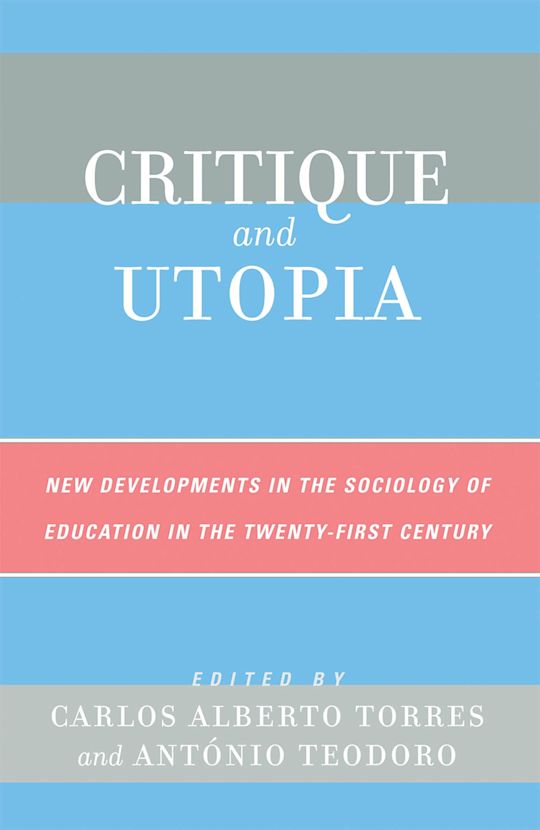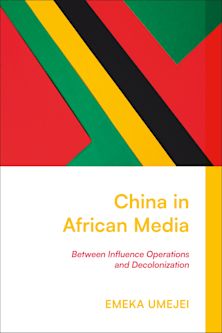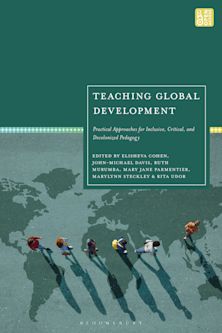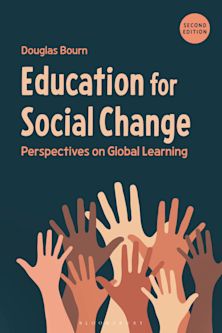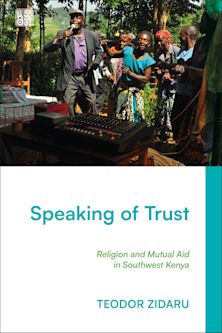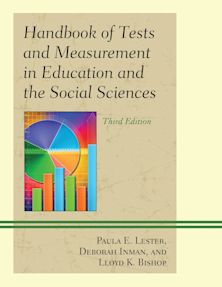Critique and Utopia
New Developments in The Sociology of Education in the Twenty-First Century
- Textbook
Critique and Utopia
New Developments in The Sociology of Education in the Twenty-First Century
- Textbook
Description
Critique and utopia are two of the central concepts of the sociology of education, and they indeed exemplify the critical traditions in the sociology of education as a discipline. This book analyzes, using theoretical frameworks and empirical data, the state of the art of the sociology of education at the beginning of the century, offering a systematic criticism of the dominant theories, and findings in the sociology of education. Key chapters focus on theoreticians who have made an impact in the discipline, including Basil Bernstein, Pierre Bourdieu, Paulo Freire. Yet, there is much more than theoretical analysis in this book. It also offers insights for policy and practice in diverse areas of education, including the formal, nonformal, and informal modalities of educational praxis.
Table of Contents
Part 2 Part I: Sociology of Education: New Perspectives and Debates in the Twenty-First Century
Chapter 3 Schooling for Critical Education: The Reinvention of Schools as Democratic Organizations
Chapter 4 Globalization and the Rescaling of Educational Governance: A Case of Sociological Ectopia
Chapter 5 Human Rights and Citizenship: The Emergence of Human Rights Education
Chapter 6 Europe as a Bazaar: A Contribution to the Analysis of the Reconfiguration of Nation-states and New Forms of 'Living Together'
Chapter 7 Educational Policies and the Sense of Possibility: A Contribution to Democratic Education in a Progressive Age
Chapter 8 Rescuing Education from Corporate Takeover: from 'Public Choice' to Public Action
Part 9 Part II: Theoretical Resources for the Sociology of Education
Chapter 10 Basil Bernstein and the Sociology for Education
Chapter 11 Sociology of Education or the Education of Sociology? Paulo Freire and the Sociology of Education
Chapter 12 Bourdieu's Sociology of Education: Identifying Persistent Inequality, Unmasking Domination and Fighting Social Reproduction
Chapter 13 Paulo Freire, Education and Transformative Social Justice Learning
Product details
| Published | 16 Apr 2007 |
|---|---|
| Format | Ebook (Epub & Mobi) |
| Edition | 1st |
| Extent | 192 |
| ISBN | 9780742575806 |
| Imprint | Rowman & Littlefield |
| Publisher | Bloomsbury Publishing |









